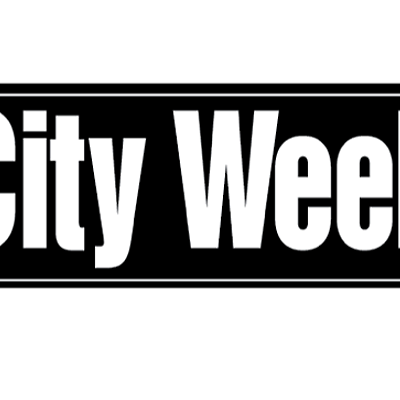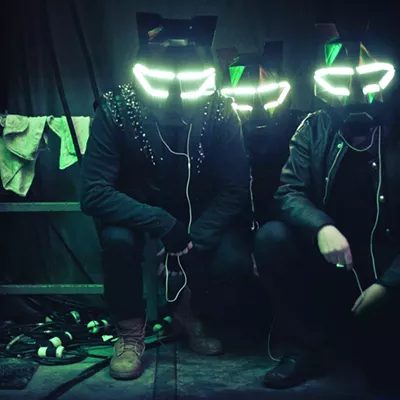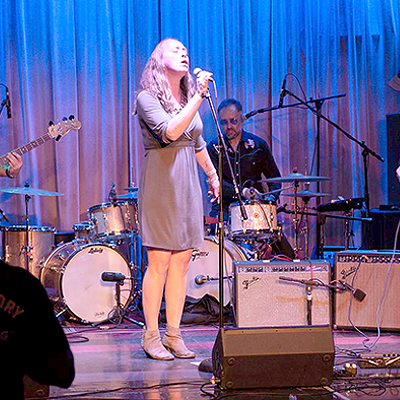But there's something serious in the name, too.
"First, (the name) was inspired by those funhouse mirrors that distort the image you see of yourself," said Lee Anne Hartley, after a rehearsal this past Saturday evening. "We are only human, so our views of the world and each other are each uniquely distorted.
"But, also, when you see something in an unexpected way, you get over your normal resistance. We hope that presenting different perspectives may allow us new opportunities and a new vocabulary to talk to each other."
Dance fans can gaze into Funhouse's mirror Saturday and Sunday nights when the company presents Heirloom in the still-new Stevie Eller Dance Theater on the north side of the University of Arizona mall, just west of North Campbell Avenue.
Hartley said she is greatly looking forward to performing in the theater, which was specifically designed and designated for dance performances. So is her co-artistic director, Thom Lewis, who received his master of fine arts degree from the UA Dance Division, which operates the Stevie Eller.
"Oh yeah, Funhouse at a new house. I'm excited," says Lewis. "The only issue over there is parking. Tucsonans like to be able to pull the SUV right up to the front of the building and step out."
That hasn't stopped intrepid dance audiences, who for years weren't intimidated by a walk of a couple blocks to attend performances in a converted gymnasium, where you sat on foldout wooden bleachers. There's never going to be doorstep parking at the Stevie Eller Dance Theater. Free, after-hours street parking, however, is available within a few blocks in each direction, and a parking garage is next door to McKale Center.
The show this weekend will include two new pieces--one each from Hartley and Lewis--and a couple of previously seen works, performed by a company whose members have been borrowed from fellow dance groups O-T-O Dance, New ARTiculations, Zeffirelli 8, the UA dance division and local high schools.
"It's a pick-up company, but some of us have been working together for years now, and more and more, it's feeling like a proper company of dancers," Hartley said.
Hartley's new work is entitled "Leaves," and is intended to capture the spirit and mood of 19th-century America, including the bloodshed of the Civil War. The work was inspired by emotions and ideas contained in poet Walt Whitman's legendary collection, Leaves of Grass.
"He wrote that we are all leaves of grass, and it's how we all have interacted with each other that makes us see the overall picture of who we are as a people," Hartley said.
Using 11 dancers, in addition to Hartley and Lewis, "Leaves" includes gospel and traditional Irish folk music, as well as the work of composers Stephen Foster and Scott Joplin. What it doesn't contain are any excerpts from Leaves of Grass.
"None of the poems are spoken during the performance," Hartley said. "There is lots of talking in the piece, but it's in acting context. Thom reads from Huckleberry Finn, for instance. But the dancing is clear. The dancers really represent Whitman's poetry for me."
Lewis' new work, "Indo-China Redux," also concerns war. In this case, it's the Vietnam War. It has thematic connections, as well, to World War II and the war against Iraq.
"It's about a soldier in Vietnam. ... It comes from a lot of ideas. It starts off with this great song I heard by The Clash, called 'Straight to Hell,' which is about an Indochinese child and the cultural clash he experiences.
"It also goes back to something my father said to me. He was a Marine in the Guadalcanal invasion, and he was a decorated war hero. I grew up in the '50s, when there were a lot of war movies. And he would see them on the TV, and he would just shake his head and say, 'The main thing about war, Tommy, is that people get killed.' That just has stuck with me to this day."
Lewis said he also borrowed some lines from the father of one of the first Marines killed in Iraq.
"You know, when the father was interviewed on TV, and he said that statement about how his son's chair at the Thanksgiving table would never be filled again? That's in there."
Using music by Bach and electronica artist Moby, the piece includes "five women and four men, one person reciting text and a few other people sitting around the Thanksgiving table," Lewis said.
Also on the program will be Lewis' much-appreciated baseball work, "The Boys of Summer." He also will perform with Julia Miller, a longtime Funhouse associate in the duet "Now and Then," which was choreographed by Charlotte Adams, the former director of Tucson's 10th Street Danceworks and now a professor of dance at the University of Iowa.
The members of Funhouse Movement Theater are continually preparing a new show. Their season now includes a fall outdoor performance at the DeMeester Outdoor Performance Center in Reid Park, and a formal, indoor show in the spring. Throughout the school year, Lewis and Hartley re-package the shows for youth-outreach dance programs.
"We also present two matinees of each concert to our youth outreach audiences," Hartley said. "This week, they will be the Thursday and Friday mornings.
"The dancers love it, because these kids will say whatever comes to their mind, so we all get immediate responses. When the adult audiences come in for the evening shows, after two days of performing to kids, we are always surprised at how quiet they are comparatively."
Hartley said her working relationship with Lewis is one of the reasons they continue to create Funhouse performances.
"I think that Thom and I continue to keep learning how to work with each other. There's a way we deal with each other--and we don't talk about it very often, and maybe we shouldn't--but it's very deep and very intimate. We look at each other's work, and we have learned to tell each other what it needs, and learned how to tell each other. It's frustrating, enjoyable and rewarding."









